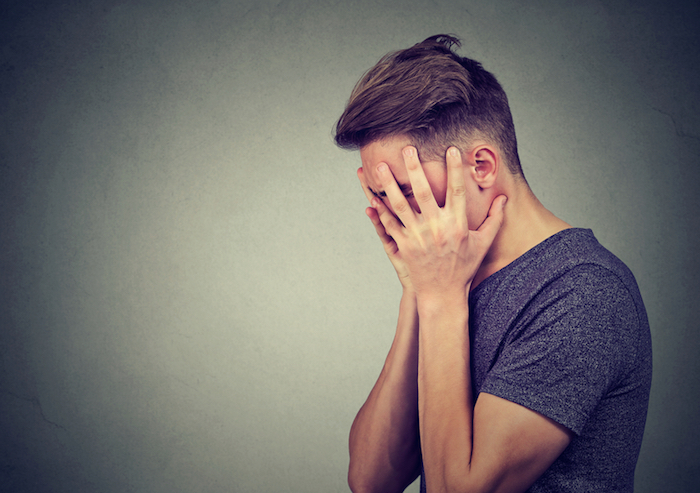- Calls to this hotline are currently being directed to Within Health, Fay or Eating Disorder Solutions
- Representatives are standing by 24/7 to help answer your questions
- All calls are confidential and HIPAA compliant
- There is no obligation or cost to call
- Eating Disorder Hope does not receive any commissions or fees dependent upon which provider you select
- Additional treatment providers are located on our directory or samhsa.gov
Taking Antidepressant Medication for Co-Occurring Anxiety and Eating Disorders
If you have co-occurring conditions, then you experience more than one condition at a time. This is common in people with eating disorders [1]. Anxiety disorders are one of the most common co-occurring conditions that people with eating disorders experience [1].
What are Antidepressant Medications?
Antidepressants are prescription medications that were developed initially to treat depression [2]. However, these medications have also shown to be effective for people with anxiety [2].
Researchers find that these medications help your brain manage the chemicals that are involved in controlling stress and mood [2]. There are different types of antidepressants. These are: [2,3]
- Selective serotonin reuptake inhibitors (SSRIs). SSRIs work by increasing serotonin levels in the brain. Serotonin is a brain chemical that directly influences mood. There are eight different types of SSRIs available. Different SSRIs may be more effective in managing certain symptoms of anxiety in people with disordered eating.
- Serotonin and norepinephrine reuptake inhibitors (SNRIs). Similar to SSRIs, SNRIs work to increase the level of serotonin and norepinephrine in the brain.
How do Antidepressants Work for Anxiety and Eating Disorders?
Co-occurring conditions can feed into each other. For example, someone may rely on disordered eating behaviors as a way to manage their anxiety. It’s important for people with co-occurring anxiety and disordered eating to learn to manage both conditions.
Anxiety disorders are one of the most common co-occurring conditions that people with eating disorders experience. [1] There are different kinds of anxiety disorders that are seen most often in people with disordered eating, such as generalized anxiety or obsessive compulsive disorder [1].
It is not recommended to rely solely on medications to treat these conditions [4]. Research shows that the most effective treatment for co-occurring anxiety and disordered eating is a combination of medication, counseling, and medical supervision [4].
Research also shows that antidepressants are more effective in treating certain eating disorders [4]. People with anorexia nervosa are more likely to benefit from therapy [4]. Medication can be helpful during the recovery process, but only when combined with counseling [4].
People with bulimia nervosa or binge eating disorder are more likely to benefit from medication than people with anorexia [4]. Psychiatrists who work with eating disorders are likely to be aware of which antidepressants are most effective for these different conditions.

Are There Side Effects of Antidepressants?
Side effects are common when first starting antidepressants [2]. Everyone’s body will react differently to these medications [2]. These side effects are typically mild [2]. Common side effects are: [2,3]
- Nausea and vomiting
- Diarrhea
- Sleepiness
- Sexual problems, such as a lack of interest in sex
- Blurred vision
- Difficulty achieving orgasm during sex or masturbation
- Difficulty maintaining an erection
If these symptoms are intolerable, it’s important to talk with your doctor or psychiatrist. You may benefit from a different antidepressant or treatment approach [2].
It’s important not to quit these medications cold turkey. Coming off of antidepressants without medical guidance is dangerous due to potential withdrawal symptoms [2,3].
Related Reading
Who Should Take Antidepressants?
If you are experiencing signs of an anxiety disorder, then you might benefit from an antidepressant [2]. There is a difference between occasional anxiety and a diagnosable anxiety disorder [5]. Signs of an anxiety disorder are: [5]
- Feeling restless or on-edge
- Being easily fatigued
- Difficulty concentrating
- Irritability
- Muscle tension
- Difficulty managing worry
- Sleep problems, such as having a hard time falling or staying asleep
- Panic attacks
- Phobias, which are intense fears of a specific objects or situations
Talking with your doctor or psychiatrist about these symptoms can start the conversation about treatment options.

What if Antidepressants Don’t Work for me?
It’s possible that antidepressants aren’t a good fit for you. There are other treatment approaches that can work for people with anxiety and an eating disorder [5]. These are:
- Therapy. Therapy during treatment for eating disorders and anxiety can help you focus on building healthy thought patterns about food and stress management and develop healthy coping skills for anxiety
- Other types of anxiety medication, such as benzodiazepines or beta blockers
- Support groups
- Stress management techniques, like yoga or meditation
If you are looking for treatment for a co-occurring eating disorder and anxiety, please use the treatment finder to find a treatment center or provider near you.
Citations
[1] National Eating Disorders Association. Statistics and Research on Eating Disorders. https://www.nationaleatingdisorders.org/statistics-research-eating-disorders [2] National Library of Medicine. Antidepressants. https://medlineplus.gov/antidepressants.html [3] NHS. Selective Serotonin Reuptake Inhibitors (SSRIs). https://www.nhs.uk/mental-health/talking-therapies-medicine-treatments/medicines-and-psychiatry/ssri-antidepressants/overview/ [4] Gorla, K. & Mathews, M. (2005). Pharmacological treatment of eating disorders. Psychiatry, 2(6), 43-48. [5] National Institute of Mental Health. Anxiety Disorders. https://www.nimh.nih.gov/health/topics/anxiety-disorders#part_2225Author: Samantha Bothwell, LMFT
Page Last Reviewed by Jacquelyn Ekern, MS, LPC @ May 24, 2022

